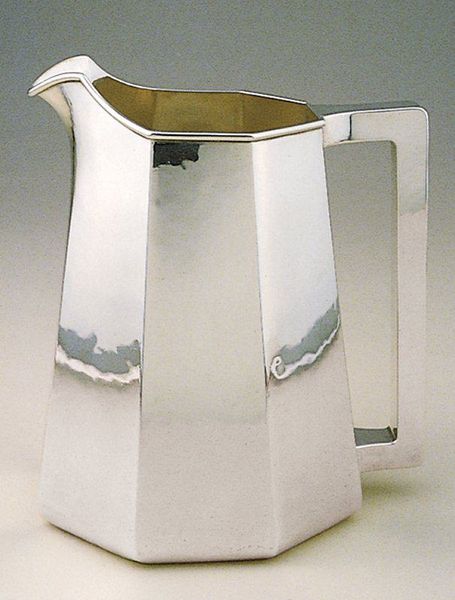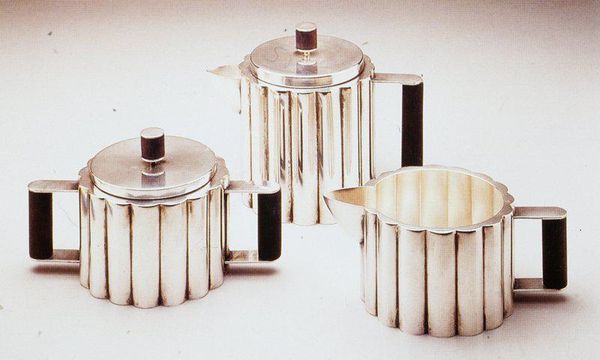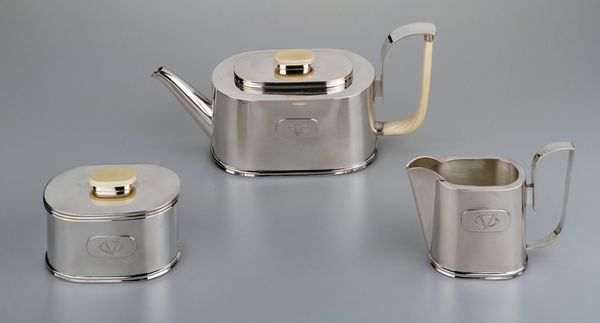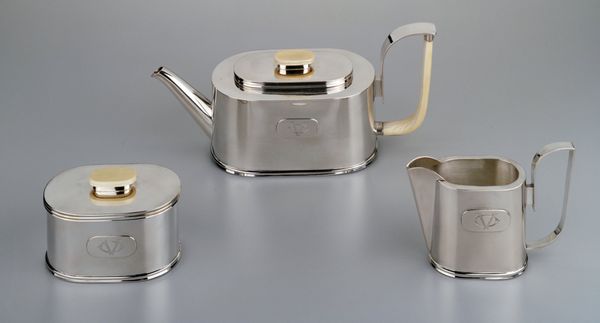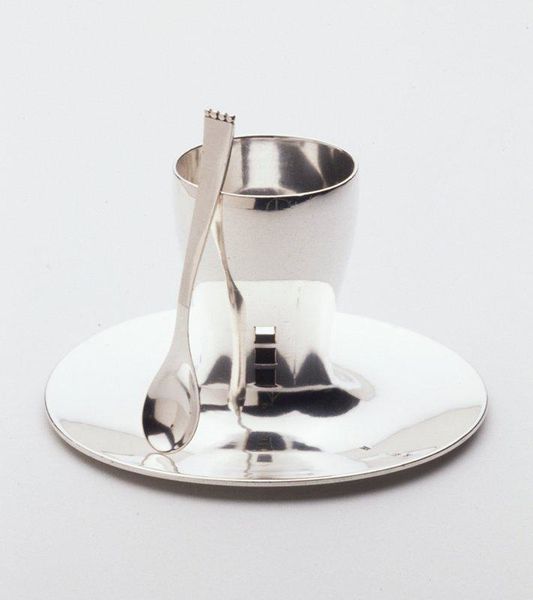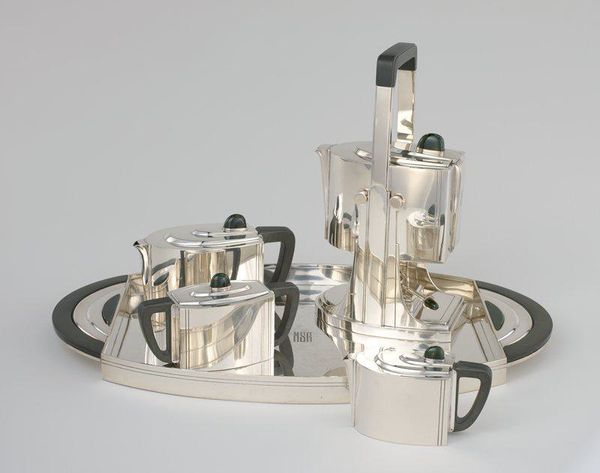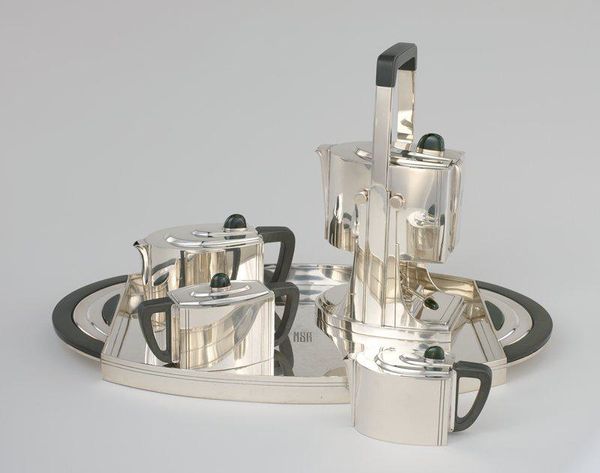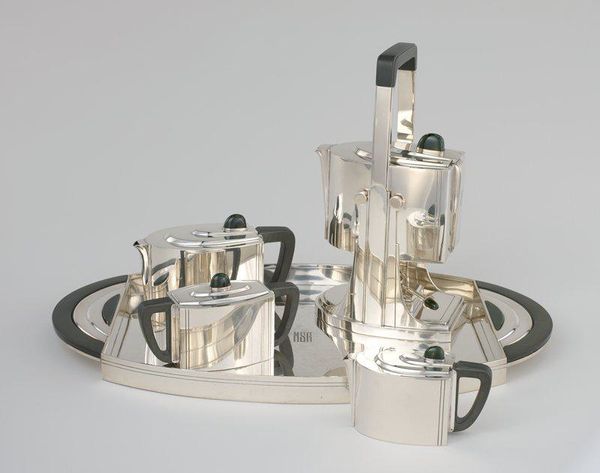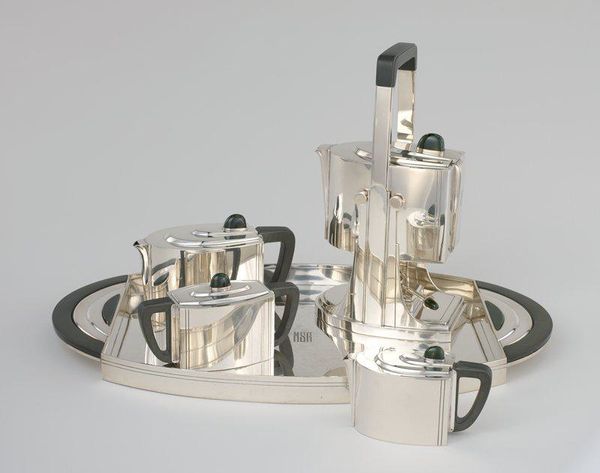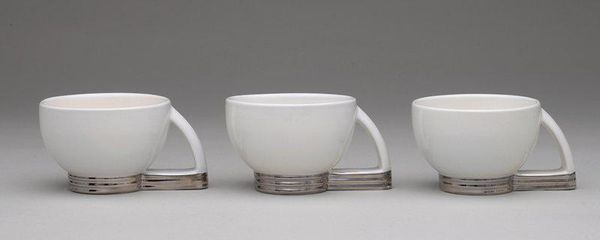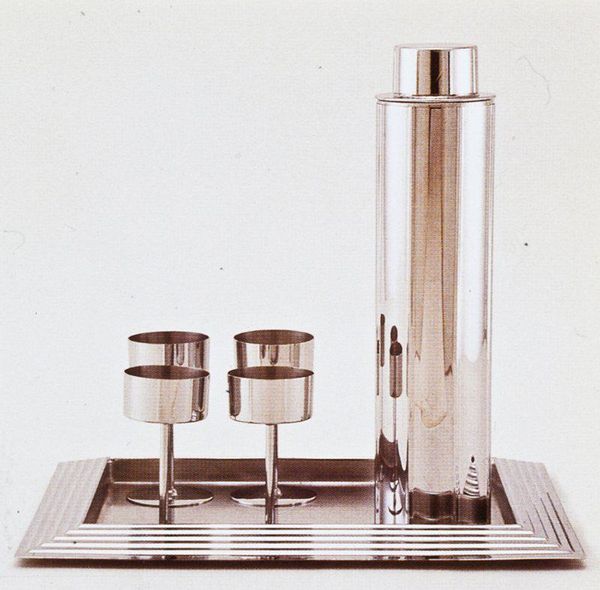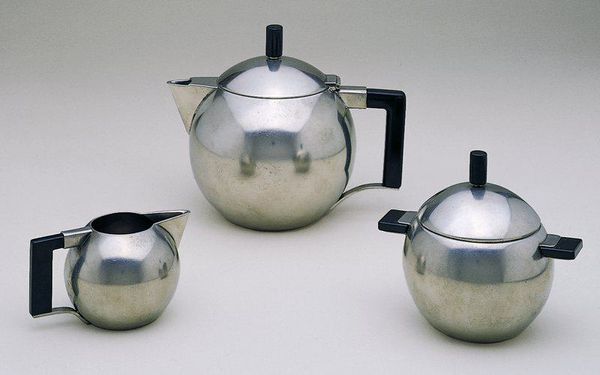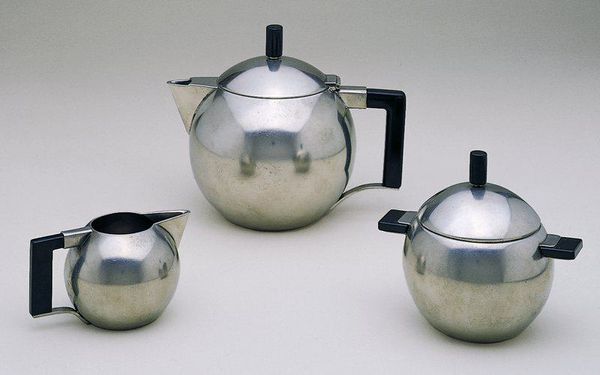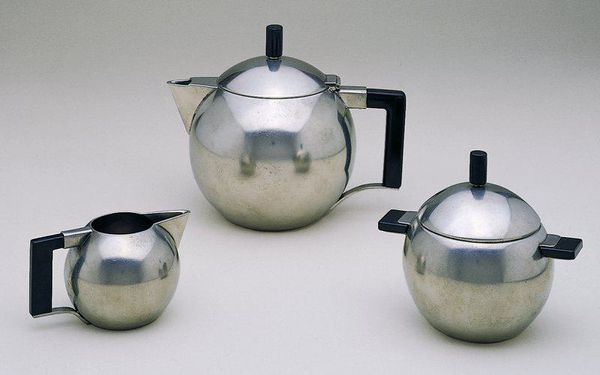
silver, metal, sculpture
#
art-deco
#
silver
#
metal
#
sculpture
#
decorative-art
Dimensions: 10 1/8 x 6 1/2 x 4in. (25.7 x 16.5 x 10.2cm)
Copyright: No Known Copyright
Curator: Welcome. Here we have a coffee set designed in 1930 by Wiwen Nilsson, part of the decorative art holdings in the Minneapolis Institute of Art. The set, sculpted from silver and metal, showcases Nilsson's elegant approach to Art Deco. Editor: Stark. That's my initial reaction. A dazzling geometric rigidity, almost like a cubist still life materialized in gleaming silver. Curator: Indeed. This set is fascinating because it straddles utility and the avant-garde, it appeared during a period when the decorative arts sought parity with the fine arts, consciously engaging design with socio-political change. Its sleek form defies the opulence typically associated with luxury items. Editor: Precisely! Note the striking interplay of light and shadow across the precisely angled facets. The way the cylindrical handles are so sparsely affixed adds to the overall machine-age aesthetic. Every element feels rigorously pared-down. Curator: Nilsson’s designs resonated with the functionalist movement’s ethos of form following function, stripping away excessive ornamentation and aligning itself with modernism's societal aims: this wasn’t just a coffee set. This was a statement against pre-war bourgeoise sensibilities. Editor: So true. It isn’t frivolous. I detect echoes of Bauhaus in its uncompromising simplicity. But the high-shine material itself also reflects the era's celebration of industrial progress. Silver elevates these practical forms into luxurious objects. Curator: Beyond design and manufacture, it hints at the role luxury played at this time. Who did it serve? How were domestic tastes reshaped by modern artistic movements? The Coffee Set embodies the shift in society between the wars toward industrial aesthetics, challenging class lines as the aesthetic of elites shifted towards starker shapes and simplified features. Editor: The social commentary adds richness to appreciating what otherwise would be purely abstract appreciation. It transforms mundane tools of hospitality into quiet monuments. Curator: Thinking about its provenance enriches our comprehension of its presence now. Seeing its functionality now allows new perspectives and dialogue. Editor: Indeed. I find myself viewing both form and history in a fascinating new light.
Comments
minneapolisinstituteofart about 2 years ago
⋮
Wiwen Nilsson developed a production line including expertly crafted hollow ware, flatware, jewelry, and sculpture after taking over his father's workshop in 1927. Skilled as both a designer and technical expert, Nilsson extended the functionalist impulse in Sweden to abstraction, approaching purely geometric forms throughout the 1930s. This coffee service is a fine example of his tempering of severe angularity and faceting with the addition of reeded molding or a gentle curve in the design.
Join the conversation
Join millions of artists and users on Artera today and experience the ultimate creative platform.
